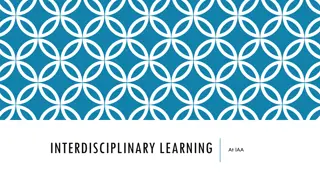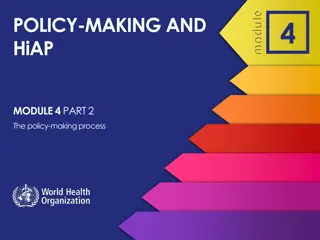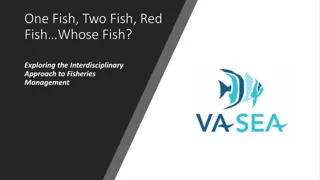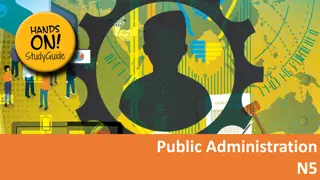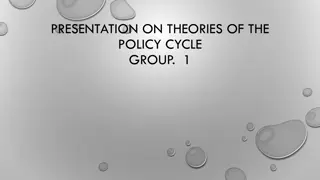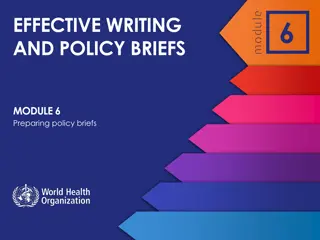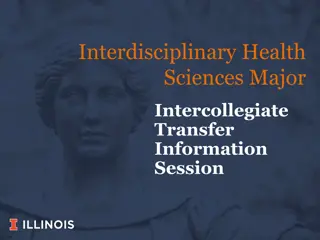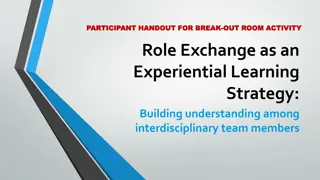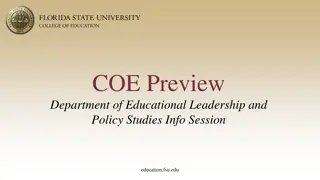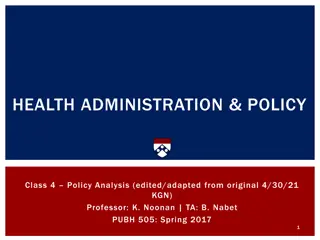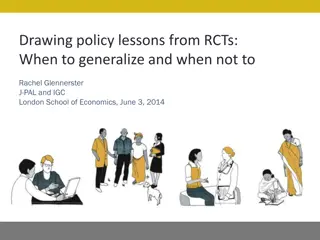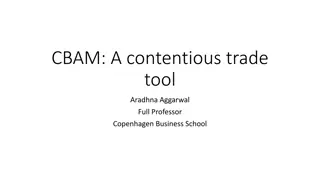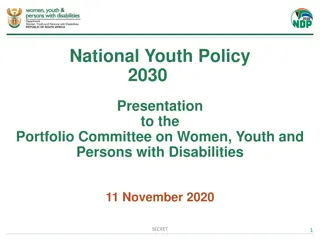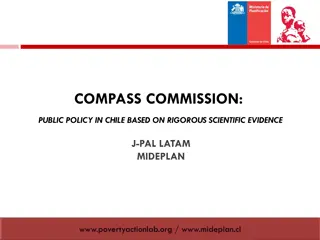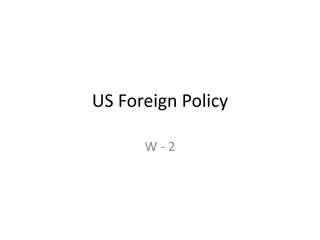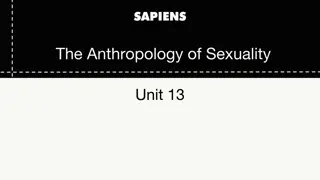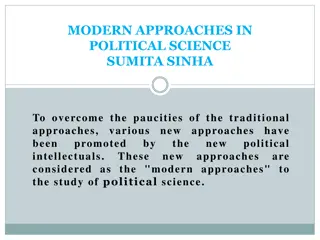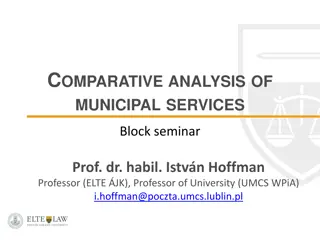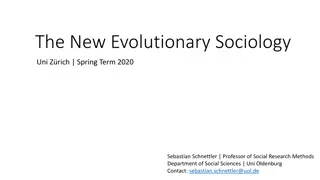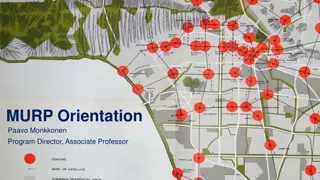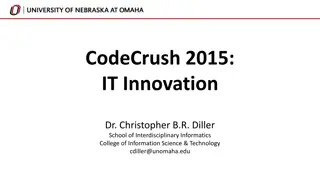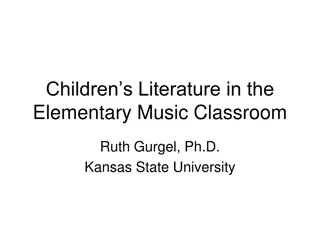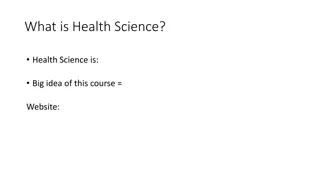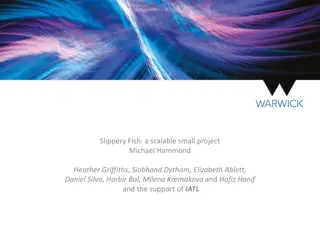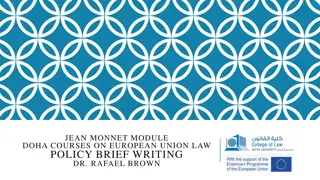Enhancing Interdisciplinary Perspectives in Policy-Making
Integrating knowledge across social sciences, arts, and humanities enhances policy-making by transcending biases, identifying side effects, capturing complexity, and preparing for uncertainties. Collaboration between integrative scholars and policy-makers is essential for effective communication and mediation among diverse interests. Understanding both stability and instability through interdisciplinary lenses is crucial for addressing complex challenges ahead.
Download Presentation

Please find below an Image/Link to download the presentation.
The content on the website is provided AS IS for your information and personal use only. It may not be sold, licensed, or shared on other websites without obtaining consent from the author. Download presentation by click this link. If you encounter any issues during the download, it is possible that the publisher has removed the file from their server.
E N D
Presentation Transcript
Perspectives on Interdisciplinary SSAH Policy-Making Rick Szostak University of Alberta College of Europe Stronger Together Conference, Tervuren, BE, May 7, 2024
Integrating across SSAH Will better transcend scholarly biases (every discipline has favoured theories, methods, and phenomena to study) Will better identify side effects Will better capture the complexity of policy challenges Will better prepare us for instability and unknown unknowns Will first evaluate disciplinary insights in a way that complements disciplinary evaluation, and then integrate the best ideas
A Further Kind of Integration We should then enhance ties between integrative scholars and policy-makers. These should interact regularly so that academics know the challenges being faced, and can address these. So we need a sizeable body of integrative scholars in regular contact with policy-makers See https://i2s.anu.edu.au/
The skills of integrative scholars May also be useful in mediating among competing interests (and identifying their core interests and beliefs) May also be useful in communicating policy proposals to diverse audiences Are also invaluable when policies are later evaluated
Interdisciplinarity and Instability We may not often need to understand how pandemics or wars affect economies, but it is sometimes really important. More generally all disciplines tend to focus on the forces generating stability within subsystems: economic stability, cultural stability etc. They all recognize instability but tend to treat sources of instability as exogenous. Economics largely focuses on equilibria or constrained cycles. Even when we discuss growth we often theorize a very stable kind of growth. Interdisciplinary analyses often try to grapple with change and instability. We need to understand both stability and instability. Stability, Instability, and Interdisciplinarity Issues in Interdisciplinary Studies.35, 65-87, 2017.
Historical Transformations ALL historical transformations involves cross-disciplinary linkages. That is, economic transformations do not just have economic causes or effects. Recognizing this, we should not expect the Great Depression to have been an entirely economic event. [There are very good reasons to blame much of it on the time path of technological innovation] Looking forward we will be much better able to cope with the future if we explore cross-disciplinary linkages. Can examining cross-disciplinary interactions illuminate unknown unknowns? Integration and Implementation Sciences, January 2021 (blog post) https://i2insights.org/2021/01/05/cross-disciplinarity-illuminates-unknown- unknowns/comment-page-1/#comment-30503 This was re-blogged in July 2023.
Integration (Requires creativity) Strategies to achieve integration: Redefinition: Meanings of concepts are clarified. Theory extension: A theory is broadened in scope to envelop the concerns of other theories. Organization: Seemingly unrelated concepts are placed in some relationship or classification. Transformation: Opposing insights are placed on a continuum.
Interdisciplinary Evaluation It is important to appreciate that interdisciplinary evaluation complements disciplinary evaluation. Disciplinary referees and editors will ask whether disciplinary theory and method are properly applied. Interdisciplinary analysis asks what alternative theories and methods might have found, whether disciplinary perspective guides results, and why results might differ across disciplines. [Students can find this empowering.]
Disciplines Establish a mutually supportive set of theories, methods, phenomena to study, and epistemological beliefs. This evolves slowly through time, and is reflected in a set of guidelines for hiring, promotion, publication. The rise of behavioral and experimental economics shows how evolution can involve a new coherent set.
Synergy between Specialized and Integrative Research Integrative research integrates across phenomena, theories, and methods, drawing upon specialized research Can then inform specialized researchers of the benefits of alternative phenomena, theories, and methods If we want a more coherent social science, we will need something more than just strong disciplines.
The Social Sciences did not divide the subject matter logically
Challenges in Collaborating with other Human Scientists Different and often vague terminology Differences in epistemological outlook Quantitative versus qualitative Research impact (pros and cons)
An Integrated Human Science The Map of Human Science (and a recognition that all subsystems are open) Integrative research within and among disciplines (That is, we need to devote much more effort to tying the pieces together.) Recognition that all theories and methods are imperfect; have compensating strengths Clarity in terminology and expression Constructive postmodernism Integrating the Human Sciences: Enhancing Cohesion and Progress across the Social Sciences and Humanities. London: Routledge. 2023.


